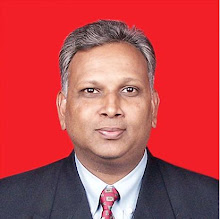Interdisciplinary centre planned at IISc.
Divya Gandhi
| It will be a radical departure from traditional academic structures |
It will adopt a problem-solving approach
Plan being discussed with Sir Ratan Tata Trust
The Tata Centre for Interdisciplinary Research (TCIR), scheduled to come up within the IISc. campus in 2009, will be a “radical departure” from traditional academic structures with its “problem-solving” approach and close association with industry, academia and medical institutions, said Sanjay Biswas, Dean, Engineering, IISc.
The proposal for the TCIR is in the final stages of discussion with the Sir Ratan Tata Trust, which is likely to provide Rs. 400 crore to Rs. 500 crore as initial funding for the project. The rest of the long-term projected costs will be met from other sources, including industry.
“If all goes as planned, TCIR will be up by January 2009 and Ph.D. students will be admitted by June. It will be a ‘virtual’ centre to start with, but we will have a 300,000-square-feet centre within the IISc. campus by the end of next year,” added Prof. Biswas, who personally favours pink sandstone styled after Hampi architecture.
New approach
Its faculty, administration and infrastructure are to be “set in a free, boundary-less environment”, said Prof. Biswas. After months of deliberation, ten target problems have been identified within three broad focus areas: bio-molecular engineering; energy and material; and bridging technologies through information and communication engineering. “One of our target problems is to develop artificial retina through tissue and cell engineering with the ultimate goal of developing a complete system for artificial vision affordable by people. Another focus area is the use and design of clean energy, including hydrogen, solar and biofuel,” Prof. Biswas told The Hindu. Information and communication technology will be used to create services for emergency and distress diagnosis, and messaging for the elderly and for people with disability, he added.
The TCIR will have between 60 and 70 faculty members, all recruited on a renewable contract basis, and drawn from within the IISc., from industry and from universities. As much as 30 per cent of the faculty could be drawn from universities abroad, said Prof. Biswas. The centre will accommodate 300 students to begin with.

No comments:
Post a Comment